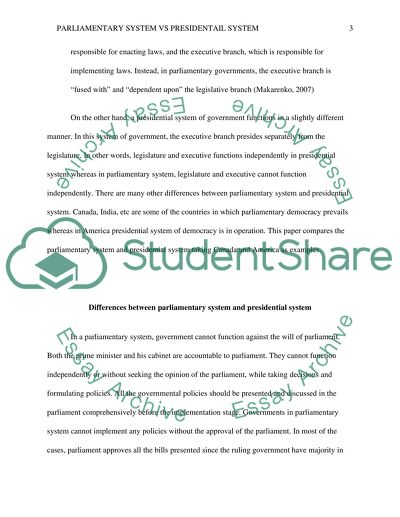Cite this document
(“Parliamentary System VS Presidential System Essay”, n.d.)
Retrieved de https://studentshare.org/politics/1390509-parliamentary-system-vs-presidential-system
Retrieved de https://studentshare.org/politics/1390509-parliamentary-system-vs-presidential-system
(Parliamentary System VS Presidential System Essay)
https://studentshare.org/politics/1390509-parliamentary-system-vs-presidential-system.
https://studentshare.org/politics/1390509-parliamentary-system-vs-presidential-system.
“Parliamentary System VS Presidential System Essay”, n.d. https://studentshare.org/politics/1390509-parliamentary-system-vs-presidential-system.


